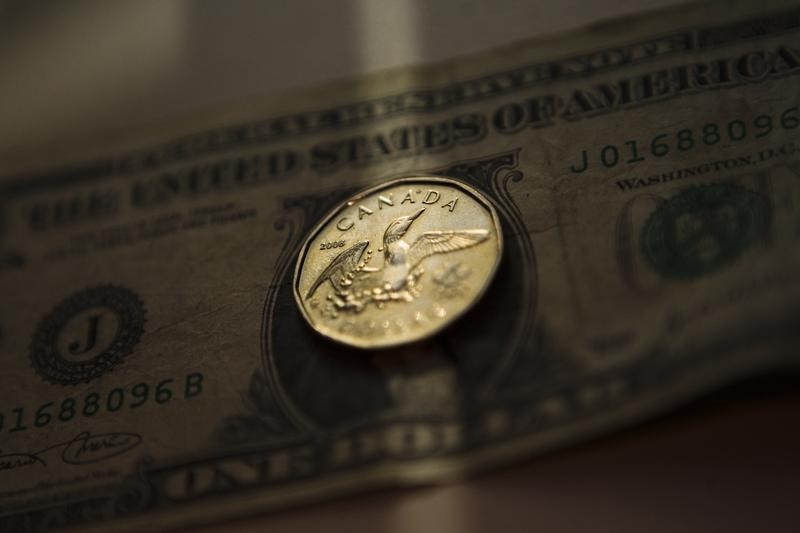* Canadian dollar at C$1.3186, or 75.84 U.S. cents
* Loonie touches its weakest since Aug. 5 at C$1.3200
* Bond prices higher across the maturity curve
TORONTO, Sept 14 (Reuters) - The Canadian dollar weakened to a nearly six-week low against its U.S. counterpart on Wednesday as oil prices fell and risk appetite remained constrained.
A recent rise in bond yields, triggered in part by deepening worries over the difficulty of the world's major central banks to stimulate growth, kept investors in broadly risk-off mode. rise in bond yields weighs on higher-yielding commodity-linked currencies such as the Canadian dollar.
Oil fell despite data from an industry group that showed a smaller-than-expected build in U.S. crude stockpiles. U.S. crude CLc1 prices were down 0.60 percent at $44.63 a barrel.
At 8:51 a.m. EDT (1251 GMT), the Canadian dollar CAD=D4 was trading at C$1.3186 to the greenback, or 75.84 U.S. cents, slightly weaker than Tuesday's close of C$1.3170, or 75.93 U.S. cents.
The strongest level of the session for the currency was C$1.3128, while it touched its weakest since Aug. 5 at C$1.3200.
The reduced potential for global economic growth and resultant lower neutral interest rates could pose risks for financial stability, Bank of Canada Senior Deputy Governor Carolyn Wilkins said. also reiterated the dovish message of last week's statement from the central bank, saying there were downside risks to Canadian inflation due to question marks about exports.
Austrian Chancellor Christian Kern's opposition to a free trade agreement between the European Union and Canada was countered by fervent praise for the deal from his deputy at a special parliamentary session on the matter. Monday, Canadian Trade Minister Chrystia Freeland said her country was working toward signing a new trade agreement with the European Union in October.
Canadian government bond prices were higher across the yield curve, with the two-year CA2YT=RR up 2.5 Canadian cents to yield 0.589 percent and the benchmark 10-year CA10YT=RR rising 32 Canadian cents to yield 1.196 percent.
Earlier in the session, the 10-year yield touched its highest since June 23 at 1.281 percent.
Canadian home prices climbed 11.4 percent in August from a year earlier, data showed. Leading the gains were the two hottest markets, Vancouver and Toronto, where prices have more than doubled in just over 11 years.
